|
During my fifth year with D.C. United, the team brought in a nutrition specialist. The specialist gave his presentation and then looked toward a table in the middle of the locker room that held about 40 pill bottles of vitamins, supplements, mild pain relievers, gels, powders, and who knows what else. The nutritionist then walked over to the table, looked back to us, and said, “you know, if you just eat well you can throw all of these out. In fact, you’d be better off doing that.” He left the locker room five minutes later and never came back. For my first five years at DCU, I had been taking those vitamins and supplements at the recommendation of our strength and conditioning coaches and athletic trainers. Now a certified nutritionist deemed the whole thing a waste of time and had even said they could hinder our performance—I wondered what exactly to do. Who should I listen to? This memory has stayed with me because it matters a lot for an athlete what you do with your body. It matters how you train, eat, sleep, relax, and recover. You need to know what is helpful for your athletic development and what is unhelpful. I wanted to know if the pills and supplements helped me or hindered me. This all applies to athletic prudence in the natural realm. Prudence is the ability to judge rightly and act according to that knowledge. It is being able to think through things correctly and then make the right choice. Thus, athletic prudence is the ability to choose and act rightly in the realm of an athletic pursuit. We make decisions and then act based upon what we have concluded is actually helpful or unhelpful in relation to our goal. I would like to apply this same line of thinking to the virtue of prudence in the supernatural realm. We should be asking what is helpful or unhelpful in terms of our spiritual lives. Just like the nutritionist condemning our pill vault and making me wonder what was actually helpful for my soccer career, we should ask what in our lives helps or hinders us from going to God. In order for us to do this, of course, we must acknowledge that God is both our goal and a worthy (the most worthy!) goal at that. When I got to the height of my playing career I was devastatingly depressed for a very concentrated span of time (only several days). For months I pondered why I hit such a low point amidst more success than I had ever expected. Eventually, through the help of the Holy Spirit, I realized that God allowed me to feel the weight of my success without Him. It was an incredible grace—but also one that was difficult to really learn. Over time the truth that my soul was more important than my sport sunk in. I realized that much of what I had made my life about was, in the end, unhelpful for reaching the ultimate Goal who is God. I started applying my athletic thinking to my spiritual life. I started asking the right questions—is this helpful or unhelpful for my spiritual life? Should I be hanging out with this group of friends so much? Are my weekend habits really bringing joy to my life? Am I living as the person I want to be? Do I know who I want to be? These questions led—and continue to lead—me to Jesus, and I find myself needing to ask them again and again. Do the decisions I make help me become who I want to be? Or are my decisions hindering me from being that person? Athletic prudence helps athletes maximize their potential and use their God-given gifts to the best of their ability. This same principle can—and should—be applied to our spiritual lives. Are the decisions, actions, and principles that guide my life helpful? Are they leading me in a good direction? Prudence, says St. Thomas Aquinas, is the mother of the virtues. You cannot possess any virtue without the virtue of prudence because prudence is what enables us to recognize what is truly good (helpful) and then act according to that good. No athlete can become great apart from athletic prudence because athletic prudence enables the athlete to recognize and act upon what helps him or her become a good athlete. Far more important, however, is the realization that no person can become who they were created to be apart from supernatural prudence. It is not possible to follow Christ without first asking yourself what exactly it is you’re already following—what is it that shapes your decisions? It may be a desire for comfort, power, status, honor, wealth, success, popularity, or any number of things. But they all fall short. To be prudent you must know the end goal. You cannot attain the virtue of prudence in the whole of life without knowing that “it is Jesus in fact that you seek when you dream of happiness.”  Taylor Kemp is an instructor for the Denver Catholic Biblical School as part of the St. John Vianney Seminary Lay Division in the Archdiocese of Denver. He is a former professional soccer player, amassing over 100 appearances over six-years in Major League Soccer (MLS) for D.C. United, and playing for both the youth and full United States Men’s National Team. Taylor holds an MA in Theology from the Augustine Institute and BS in Business Management from the University of Maryland, College Park.
0 Comments
“Through your infinite mercy… destroy in me all my cruelty; give me your mercy, transform me in your mercy, and let my life be a life only of works of corporal and spiritual mercy for the benefit of all.” - St. Vincent Pallotti If one goes online right now, he or she will find many uplifting posts on social media. But all too often, there are also cruel attacks aimed at one another—even by practicing Catholics. Yet, as St. Vincent Pallotti reflected on and experienced, God is infinite love and mercy. In and through our experience of God’s mercy and love, we are challenged to live both out in our interactions with others both physically and online. As St. Vincent Pallotti attested to, the Corporal and Spiritual Works of Mercy are fundamental to our growth and spiritual lives. Everyone knows there is suffering of all sorts in our world. Why would a Christian want to add intentionally to that suffering? Sometimes, this can be done unintentionally through sins of omission. As we say at Mass during the Confiteor, we ask forgiveness for “what I have done and in what I have failed to do.” Doing the Corporal and Spiritual Works of Mercy can aid us in examining our consciences. We can then seek forgiveness and mercy from God, especially in the frequent celebration of the Sacrament of Penance which helps us experience more deeply the infinite mercy and love of God. From there, we go forth witnessing to others what we ourselves have experienced. Pope Francis reminds us: “Mercy towards a human life in a state of need is the true face of love” (Angelus, July 14, 2019). Instead of causing suffering, we are called to compassion—to suffer with another. This is not easy, but practicing the Corporal and Spiritual Works of Mercy will assist us in learning and living a compassionate, merciful, and loving way of life in Christ. May we pray with St. Vincent Pallotti to be transformed in God’s mercy for the benefit of all. May the charity of Christ urge us on!
What image comes to mind when you hear the word conversion? To many, the words of those who encountered Jesus in his earthly ministry may come to mind. Conversion may sound like the cry of the Samaritan woman in John’s Gospel: “Come and see a man who told me everything I have done. Could he possibly be the Messiah?” (John 4:29). Perhaps Caravaggio’s The Conversion on the Way to Damascus rises to the surface, an expression of a dramatic scene illustrated with a few artistic liberties. Still, we may associate conversion with a story like St. Augustine: a turning from a former life of debauchery or sin to a life lived in pursuit of God. Because of the art that is important to our faith, cultures, and families, we may assume conversion to be a dramatic, “lightning-bolt” moment: brief, intense, supernatural, and immediately transformative. While our tradition does speak of the reality of dramatic conversions, conversion itself is often more gradual and organic. For those of us whose lives have not yet become hagiography, what does conversion look like? More particularly, what does conversion look like for us in this particular moment, in our current context of history and life? First of all, what is conversion? Conversion, according to the Catechism of the Catholic Church, is “a radical reorientation of our whole life, a return, a conversion to God with all our heart, an end of sin, a turning away from evil, with repugnance toward the evil actions we have committed. At the same time it entails the desire and resolution to change one's life, with hope in God's mercy and trust in the help of his grace” (CCC, #1431). It is “first of all a work of the grace of God who makes our hearts return to him,” and is not “aim[ed] first at outward works, ‘sackcloth and ashes,’ fasting and mortification, but at the conversion of the heart, interior conversion” (CCC #1432 and #1430). In other words, conversion is a movement away from sin, a re-ordering of priorities with Christ re-categorized as the center of our lives. It is something that occurs through supernatural grace and the initiative of the Holy Spirit, first changing our hearts and minds, but through our cooperation, manifests itself in everyday actions or “visible signs” (CCC #1430). The process of conversion, for most of us, is not instantaneous; rather, it usually a slow, gradual process that involves daily recommitment and practice. In a 2017 audience, Pope Francis reflected on the gradualness of conversion this way: “Avoiding evil and learning to do good: this is the rule of conversion. Because being converted doesn’t come from a fairy who converts us with a magic wand: No! It’s a journey. It’s a journey of avoiding and of learning.” As Pope Francis highlights, conversion can be as simple as learning something new. It involves openness to re-orienting our priorities, changing our opinions, reconsidering our worldview, and engaging with the truth. However, the gradual process of conversion doesn’t start and end with us; it is always oriented towards the building up of humanity and being brought more deeply into right relationship with God and one another. Conversion always has a social and relational impact. As the Catechism of the Catholic Church notes, “Conversion is accomplished in daily life by gestures of reconciliation, concern for the poor, the exercise and defense of justice and right, by the admission of faults to one's brethren, fraternal correction, revision of life, examination of conscience, spiritual direction, acceptance of suffering, endurance of persecution for the sake of righteousness” (#1435). Our actions towards our neighbors, God, and the world around us is where our conversion is realized and bears “fruit that will last” (John 15:16). Conversion has both vertical and horizontal dimensions to it; it calls us to recognize ourselves as Beloved children of God, and, at the same time, recognize this Belovedness in our neighbors more clearly as a result of the transforming love of God. We are called to learn more, think more deeply, and consider more thoroughly, especially when the common good of our neighbor is at stake: “It follows that Christian conversion demands reviewing especially those areas and aspects of life ‘related to the social order and the pursuit of the common good.’” (Evangelii Gaudium, 182). When we say that the Christian life is one of on-going conversion, we simply mean this: we are called to learn of our and our neighbors’ Belovedness over and over again and re-commit to it each day. This learning is not merely intellectual, but is also a deep education and formation of the heart and soul that spills over into our concrete lives. In our period of history and social context, conversion may be less dramatic and more gradual for most of us than some of the saints and figures of our faith. However, that does not mean that it is any less exciting! Our personal process of conversion can start as the size of a mustard seed, and grow into a deeply authentic faith that changes the world: “An authentic faith – which is never comfortable or completely personal – always involves a deep desire to change the world, to transmit values, to leave this earth somehow better that we found it” (Evangelii Gaudium, 183). What is going on in our world and in the lives of our neighbors that is calling us to conversion? What new things or viewpoints are we being called to learn or unlearn to realize our Belovedness and the Belovedness of our neighbor? How can we be more open to living a life of ongoing conversion?
“The beginning of all effort is the recognition of what is.” -Romano Guardini, Learning the Virtues That Lead You to God, 1963 Professional athletes do many appearances while playing. We get paid to show up at fundraisers, youth camps, watch parties, and promotional events. Something that is practically a guarantee when attending these appearances is one or more sets of parents coming up to tell us about their child who plays soccer. Often these conversations are quite enjoyable, but almost inevitably, there are a few who want to talk about how their son or daughter was short-changed in their youth soccer experience. There is a lot that these parents say to us, but the consistent element is: my child didn’t succeed because of some external factor. This may very well be the case for some of them. It is equally true, however, that it is certainly not the case for all of them. Much of the time the boy or girl just wasn’t good enough for a particular team, level of competition, or system of play. The point of this post is not to drop the heavy hammer that many kids run out of the athletic ability rope and should give up. No, this post is about the absolute necessity of taking an honest stock of where someone actually is--especially for the spiritual life. Romano Gaurdini says that “the beginning of all effort is the recognition of what is.” The reason for this being that you cannot begin making the effort to improve unless you start with who you already are. Any professional athlete will tell you that it is far more helpful to be taught how to assess and address weaknesses rather than to pretend they don’t exist. In fact, most professional athletes are fairly obsessive about identifying areas in their game where they can improve. If I determine I’d like to be a better shooter with my right foot, for example, then I must begin with the harsh—but necessary—reality that I can barely complete a pass with my right foot. If I never acknowledge my current ability, I’ll constantly run into problems—poor technique, inadequate fundamentals, and so on. I’ll never become a strong shooter without addressing the plain truth of my current ability. This is a skill that requires disciplined practice and will never simply be acquired because I want it to be so. First comes acknowledgment, then a plan for improvement, all for the hope of becoming a good right-footed shooter. This same principle can and should be applied to our spiritual lives. Just as improvement can only take place in athletics by beginning with where an athlete currently is, spiritual advancement can only begin by taking an honest assessment of where one currently is in relation to God. This means you’re far better off admitting that you struggle to pray for 5 minutes and taking that to God than wondering when you’ll receive the Stigmata. It is far more helpful to search deep within yourself and locate and name your pride, selfishness, ego, envy, or lust than only present to God your most pious and holy thoughts. He knows your heart already—He’s just waiting for you to know it as well. One of the most helpful exercises for high-school, collegiate, and professional athletes is to watch film in order to identify strengths and weaknesses. The team watches the most recent game in order to see what needs to be addressed that week in practice. This same concept can migrate into our spiritual lives—we look for points of departure and development in order to draw nearer to God. This practice is not to discourage but to improve. There’s no shame in acknowledging ourselves as we really are. In fact, God can really only begin to heal us once we acknowledge where we are hurt. The Physician cannot tend to our wounds unless we let Him see them. Several days ago, I was talking to my wife about this concept and she brought up how watching film for athletes is similar to the examination of conscience recommended by the Church. Examining one’s conscience on a regular basis is like looking back over the tape to see the strengths and the weaknesses—the graces and the sins—in order to grow. Then, with this self-knowledge, we can go to God, say thank you, and ask for forgiveness, trusting in His merciful love. God looks down on us and loves us as we are, but He also promises that His love is transformative. He looks down and says, “I love you,” while at the same time calling us higher. He wants us to identify what is so that we may cooperate with His grace and begin the beautiful work of improvement. This we call sanctification. May we all be willing to look at ourselves honestly—as we really are—so that we enter into the effort that is the fight of faith (cf Jude 3), trust that God’s grace is sufficient (see 2 Cor 12:9), and become the saints Jesus Christ died for us to be.
The ashes of our Lenten journey were more pronounced this year—not fading with Ash Wednesday but thickening in the following weeks with the outbreak of COVID-19. Each of the plans we had for Lent—the sacrifices, the resolutions, the acts of charity—were rearranged, making room for more sacrifices than we thought possible. We sacrificed control, physical freedom, the assurance that our pantries would be stocked or that our bank accounts would be replenished. We sacrificed our physical friendships, birthday celebrations, anniversary milestones, family vacations, date nights. We’ve lost friends, family, or neighbors to a virus that until a few months ago was hardly known about or discussed. We’ve sacrificed our liturgical lives, being able to receive Christ’s Body and Blood in the Eucharist, attendance at weddings or baptisms, pastoral formation, the journey into the Church on Easter via RCIA. Pope Francis likens this pandemic to the evening storm experienced by the disciples in the boat, saying, “For weeks now it has been evening.” This evening has been long, dark, full of the unknown. Throughout this “evening,” we have had to confront our vulnerabilities and experience our littleness. We’ve had to realize that without light, we cannot see. Perhaps we’ve grappled with fear in this darkness—a fear of the unknown, a fear of isolation, a fear that the dawn may never come. Perhaps our minds have been left to imagine: Lord, “Do you not care that we are perishing?” This time of quarantine, social distancing, and pandemic has been our evening storm which, “Exposes our vulnerability and uncovers those false and superfluous certainties around which we have constructed our daily schedules…shows us how we have allowed to become dull and feeble the very things that nourish, sustain and strengthen our lives and our communities… [and] lays bare all our prepackaged ideas and forgetfulness of what nourishes our people’s souls.” We thought “we would stay healthy in a world that was sick,” but the storm has awakened us from our personal slumber. And we need light. This realization is the seed of faith—a faith which recognizes the need for salvation, for one another, for the light of God. The realization of our littleness, our helplessness, our dependence, our mortality, is the perfect place from which to enter into the Triduum and await the lighting of the Easter candle—the Resurrection of Jesus Christ. God has provided flickers of hope, reflections of grace, throughout our journey at sea: livestreams of Masses, daily Scripture reflections, broadcasts of Adoration, priests hearing Confessions in drive-thrus, virtual retreats, Pope Francis’ blessing of the entire world. We have seen a “creativity of love”--the production of ventilators in car factories, the making of masks in workplaces, the donations of money, food, and supplies across the world, the video chats to those in quarantine facing death alone. We see dancing from porch balconies. Teddy bears in windows. Embraces in hospitals. Birthday drive-bys with signs and honking. People on their knees. Yes, the light of Christ exists even in the darkness. And the darkness has not, and will not, overcome it. It will shine ablaze all the more radiantly this year in the midst of our utter darkness, sparkling in the gloom. The darker the night, the better able we are to see the light. And in the darkness, we look up. Let us welcome the light of Christ this Easter by first lighting his love in our hearts. When Christ’s life lives within us, we can enkindle it in the souls of others and set alight all we encounter. “Prayer and quiet service: these are our victorious weapons,” Pope Francis reminds us. Wake up, Lord! The disciples shouted in the midst of the storm. Wake up, Lord! The world shouts again today. Let us awaken the Lord through our prayers and service. Through our acts of charity to those suffering, tired, or scared. Through our cries and supplications. Through our fasting in these unwelcome sackcloths and seemingly perpetual ashes. Cry out with me again this Triduum, “Wake up, Lord! We are perishing.” Christ’s response to our cries this week is open arms embracing us through nails and scourging. His response to our cries is a head beaten, bruised, and crowned with thorns. His response to our cries is silence to jeers, taunts, mockery, and abandonment. His response to our cries is the relinquishing of his spirit in atonement for our sins and those of the whole world. He who cried out to his Father, “my God, my God, why have you forsaken me?” also knows the darkness intimately. He knows what it feels like to be alone and perishing. But by his words do we find the light: “Why are you terrified? Do you not yet have faith?” ….“My Father…not as I will, but as you will.” Our cries are never unheard. “The Lord awakens so as to reawaken and revive our Easter faith,” Pope Francis said. “We have an anchor: by his cross we have been saved. We have a rudder: by his cross we have been redeemed. We have a hope: by his cross we have been healed and embraced so that nothing and no one can separate us from his redeeming love.” The goal of our Lenten journey is transformation—to be transfigured. This is also our prayer throughout this pandemic. Yes, we pray that it ends, that healing comes, that daily life can resume, that economies will be restored, and that suffering will cease. But even more than all of that, we pray for transfiguration. Because when we are transfigured by the love and light of Christ, when our faith has awakened and we have realized our need for salvation, then the storm can rage on while we rest knowing we will not perish—for we will know deep in our hearts that with the “dawn there is rejoicing.” Then, and only then, “In the silence of our cities, the Easter Gospel will resound.” For more Easter and Lenten resources, please click here. For more resources and reflections on COVID-19, please click here. The arrival of New Year’s Day often brings with it resolutions, goals, and new words or phrases that help us try to shape the next 365 days before us. Things like healthy eating, stricter budgets, more time spent in prayer, and increased amounts of exercise define our drives for self-improvement. We give extra time to turn our focus inward to make ourselves stronger, smarter, holier, and healthier. In an attempt to change our lifestyles, we might separate ourselves from our previous habits, relationships, or preferences so that we can sharpen our focus even more on self-growth. We hone our discipline and increase our self-reliance in the name of improvement. In the new year, our focus is often inward. While this inward focus isn’t harmful in itself, we might find ourselves stuck in our self-reliance. Now that a few weeks into the new year have passed, many of those resolutions, goals, and mantras might have faded into the background of post-holiday life. At this point, many of us have lapsed in our new practices, or we might have abandoned our resolutions altogether. We might find ourselves isolated in the new patterns we have picked up or starting to flounder due to a lack of support. Even though our New Year’s resolutions may have been made with the best or holiest of intentions, we might find ourselves failing without others to encourage us, support us, or hold us accountable. While the new year is the time when our focus is inward, the weeks soon after, when our discipline begins to wane, give us cause to lean outward. What would it look like to lean outward in our resolutions in the weeks ahead by seeking others to help us carry them out? Why might allowing ourselves to be helped by others and accompanied by them lead us to a more meaningful and spiritually significant pursuit of our resolutions? Though as Catholics we frequently hear about accompaniment in a context of explicitly spiritual progression, its fruitfulness is still applicable in non-explicitly spiritual goals in an informal sense. As the final document from the Synod on Young People, the Faith, and Vocational Discernment reminds us, “accompaniment cannot limit itself to the path of spiritual growth and to the practices of the Christian life” (Final Synod Document, 94). Accompaniment can help us experience transformation in many areas of our lives in addition to our spiritual life, as it “fosters growth in holiness through everyday circumstances and interests” (The Art of Accompaniment, 15). Though on the surface it may look like simply reaching out for the help of a friend, seeking out accompaniment to help us carry out our New Year’s resolutions has a deep theological and spiritual significance. Accompaniment is a form of “bear[ing] one another’s burdens [in order to] fulfill the law of Christ” (Galatians 6:2). When we seek another’s help to bear our burdens, experiences, hopes, and challenges, we open ourselves up to be in communion with someone else; we profess that we were created by God out of love, to love, and to be loved by others. Accompaniment is a simple way by which we actively remember that “The LORD God said: It is not good for the man to be alone” (Genesis 2:18). When we seek the help of another, we affirm the beauty of being human: we’re not meant to live life completely on our own effort and initiative. Having a good listener, mentor, or friends helps us to turn our inward focus in our resolutions outward. We no longer remain alone in our efforts, strivings, or discipline. The support of another trusted person helps us remain steadfast in our resolution to be healthier, spend more responsibly, or love more generously. This support can take the form of a quick text from an accountability partner to check in on our progress, or a weekly meet-up with a mentor to discuss our challenges. Similarly, we can seek more formal relationships of accompaniment to help meet our goals. Beginning a relationship with a therapist might help us explore more deeply our relationship with others or just as seeking the help of a personal trainer might allow us to have the added accountability to eat more nutritiously or get physically fit. Relying on others in the pursuit of transforming ourselves reminds us of the beautiful gift of being human: as human beings, we can have a profound effect on one another in providing support, love, and encouragement in growing into the people God has destined us to be. Whether sought out in a formal or informal sense, accompaniment challenges us to let ourselves be loved by others in the simplicity and complexity of our everyday life. Allowing ourselves to be supported by others, even in something as simple as our New Year’s resolutions, reveals the deep significance of others to our vocation to holiness.
We often hear that the saints must have been uncomfortable to be around. Their tendency to get straight to the point, to stop in the middle of a conversation to pray, to ask pointed, personal questions, to inquire about your relationship with God, and to be sincere about it all, might cause most people to be uncomfortable. Around these people who are striving to live authentic lives, you might find yourself itching to break eye contact, and to maybe talk about something a little lighter like the new TV show you’re watching or how it is supposed to be sunny all weekend. Though we may not all have encountered saints, many of us can point to people striving to live authentic lives. These people are often unrelenting. Uninterested in frivolities, they are interested in your soul. They want to get to the real you - the you that God made. The you without all the defenses, insecurities, wounds, and fears. But if they find those things, authentic people are also gentle in dealing with them. This is why a saint or an authentic person might make us uncomfortable. Truly authentic Christians allow the light of Christ to shine through them. And Christ is in the business of loving people. So when you are around these people, you are facing Christ through them and, all of a sudden, your real self—the one you have been avoiding and hiding—comes to the forefront. And there is a reckoning. This is what it felt like for me when I watched the movie A Beautiful Day in the Neighborhood, which is based on the true story of the journalist Tom Junod (known as Lloyd Vogel in the movie). Lloyd, who is portrayed as a cynical and unkind workaholic, is assigned to profile Mister Rogers’ Neighborhood’s Mr. Rogers for the magazine Esquire. The relationship that unfolds between them is a beautiful example of what happens when you let an authentic person into your life. I think all of us have at least one of these people in our lives; and if we don’t, we routinely search for, or try to become one. Throughout the movie, Lloyd, who comes from a broken family, struggles in his job of interviewing Mr. Rogers. Due to his cynical nature and a very strained relationship with his own father, he assumes that Mr. Rogers’s on-screen personality is just an act. He spends most of the movie resisting Mr. Rogers’s probing questions and his father’s attempts at reconciliation. Many of the scenes portray an awkward dialogue, with Lloyd becoming frustrated at Mr. Rogers for asking him so many questions! The story continues and the climactic scene shows Lloyd and Mr. Rogers in a restaurant, where he asks Lloyd to spend one minute “thinking about all of the people who have loved you into being.” Here, for a full minute, the camera pans to Mr. Rogers’ face, where he’s looking straight at you. For 60 full seconds you feel completely seen and known. After this moment, Lloyd lets down his guard and lets Mr. Rogers into his family brokenness. He comes to grips with himself, his past, and how all of that will affect his future. What happens is completely transformative. Once he forgives his father, he then accepts his identity as a father himself, and becomes more available to his wife and more supportive to his sister. The film quite beautifully shows that forgiveness has a ripple effect—once you forgive the cause of your largest wound, you experience healing, the people around you are unified, and everyone is able to love others better and more authentically. Lloyd was able to do this after he came to understand what Mr. Rogers was doing all along: searching for and loving people for who they really are, and engaging with that person, no matter how many walls they put up. Being seen and loved in this way then enables you to forgive quickly, heal faster, and love more. By following the example of Mr. Rogers, we can create families and neighborhoods that are more unified. Mr. Rogers, a beloved figure in American culture, understood what it meant to see, know, and love people at their very core, just as Christ and the saints did. People felt understood by Mr. Rogers and loved him in return. At the beginning of the movie, Lloyd felt uncomfortable with Mr. Rogers’ piercing gaze, personal questions, and spontaneous prayer; but as a result of Lloyd’s friendship with Mr. Rogers, Lloyd and his entire family came to experience healing and joy. In these ways, Mr. Rogers imitated Christ, who accompanied men and women throughout his ministry and encountered them in the midst of their brokenness and sin. Christ healed others by stepping into their brokenness with a love that inspired them to change and lead lives of holiness themselves. As we enter into the New Year, what changes can we make to better love our neighbor? How can we follow Christ and the example of Mr. Rogers and see, know, and love people in the midst of their brokenness? 10/24/2019 The Apostolate of Accompaniment: Creating an Environment of Accompaniment in Our ParishesRead NowWhen people speak about the work of evangelization or accompaniment, they often speak about going out to the margins, “to the highways and the hedgerows” (Luke 14:23,) to bring the “nones” and the unbaptized into the Church. This is, of course, an essential part of Jesus’ final commission to his apostles to baptize and make disciples of all nations (Matthew 28:16-20). But I have to wonder: what’s the state of spiritual health in our own parishes? Are the lay faithful aware that their sacramental experience is an encounter with Christ, and do they care about their brothers and sisters with whom they share Communion? Are the people in our pews accompanied by anyone in their journey of faith or are they trying to live their faith on their own? There are many definitions for spiritual accompaniment, but in the book I co-authored with Colleen Campbell as a resource for the Catholic Apostolate Center, we define spiritual accompaniment as “the apostolate of intentional relationship that is oriented toward a definitive direction of growth in holiness and transformation in the Person of Christ.” In general, accompaniment is “a broad term that refers to a relationship between two or more people who share mutuality and reciprocity in the spiritual life” (The Art of Accompaniment). I believe this “apostolate” of accompaniment is essential to a parish’s spiritual health for three main reasons: First, creating a culture of accompaniment in the parish enables the lay faithful to be who they are called to be by their baptism. In the Rite of Baptism, we receive the Holy Spirit and we are made members of Christ’s Body. As members of the same Body, we have a responsibility to bring the light and love of Christ to one another. As Paul writes in First Corinthians, the various parts of the body must have concern for one another because we need each other (1 Corinthians 12:21-26). When members of the lay faithful take an interest in one another’s faith journeys, encouraging one another on that journey, they are living their Christian vocation as the Church intends. When members of the lay faithful are not concerned for members of their parish community, they become spiritually stunted and begin to believe that faith does not require community in one Body. Second, accompaniment helps a parish to become the best ordinary place of encounter with Christ. The parish is the most likely place where an individual begins his faith journey. Churches that sit on familiar street corners appear as safe havens for those who seek the Lord or some other help. The parish must embrace a culture of accompaniment so that when individuals approach it seeking communion, they are met with a warm and welcoming response instead of sacramental hoops or parish boundary restrictions. Accompaniment challenges parish staff and parishioners to “[respect] the dignity of the human person, and [seek] to increase their freedom to respond to the all-encompassing love of God within their life” (The Art of Accompaniment). Finally, it’s important that we implement a culture of accompaniment in our parishes because one of the goals of accompaniment is liturgical worship, and this can only take place in the parish. Sacramental theology reminds us that the sacraments are how Jesus accompanies and remains with his Church in a physical way (CCC 1088). Accompaniment’s goal is “transformation in the Person of Christ,” and if the lay faithful are serious about accompanying one another, they will encourage one another to seek out liturgical life at the parish, because the sacraments sanctify us, build up the body of Christ, and give worship to the One who Accompanies. For more resources on Accompaniment, please click here. To purchase The Art of Accompaniment, please click here. “The love of God and our relationship with the living Christ do not hold us back from dreaming; they do not require us to narrow our horizons. On the contrary, that love elevates us, encourages us and inspires us to a better and more beautiful life” (Christus Vivit, 138).
Have you ever experienced the love of Christ in your life? The love of Christ is not something one and done. It is an ongoing experience. Christ is always pouring out his love to us. We are the ones who are challenged to see and believe. The love of Christ comes to us in a particular way through the Sacraments, especially the Eucharist—an intimate encounter with Christ who is truly present. Pope Francis describes this encounter: “Although we are the ones who stand in procession to receive Communion; we approach the altar in a procession to receive communion, in reality it is Christ who comes towards us to assimilate us in him. There is an encounter with Jesus! To nourish oneself of the Eucharist means to allow oneself to be changed by what we receive” (General Audience, March 21, 2018). Christ is the one who is present and he is the one who is changing us in and through our encounter with him in the Eucharist. We can choose not to see his presence, not to enter this experience of encounter, and not to be changed. That is the freedom that we have. It is the freedom to be indifferent to or reject the love of Christ being freely offered to us. When we experience Christ in the Eucharist, the great gift of his love for us, we become more than we are. We are elevated to a greater love of God and neighbor. How do we enter more fully into this encounter with Christ in the Eucharist? As Pope Francis notes, Christ “comes towards us to assimilate us in him.” He is already moving, acting, and assisting us to cooperate with his grace. We are called to prepare ourselves well for this encounter by being forgiven of our sins through the Sacrament of Penance, by preparing for our encounter through prayer, by entering into the worship of the community of faith, and by witnessing the love of Christ in our daily encounters with others. Over time, we will be transformed by Christ toward living a “better and more beautiful life.” May the Charity of Christ urge us on! “I looked into my deepest wound and was dazzled by your glory.” – St. Augustine of Hippo (attributed) My favorite Gospel passage has always been Mark 3:2-5: “And they watched him, to see whether he would heal him on the sabbath, so that they might accuse him. And he said to the man who had the withered hand, ‘Come here.’ And he said to them, ‘Is it lawful on the sabbath to do good or to do harm, to save life or to kill?’ But they were silent. And he looked around at them with anger, grieved at their hardness of heart, and said to the man, ‘Stretch out your hand.’ He stretched it out, and his hand was restored.” Why did Jesus ask this man to stretch out his hand? Didn’t He know there were people around who would be able to see what was probably this man’s greatest insecurity? Didn’t He understand that this man had been judged and ridiculed enough throughout his life? That his deformed hand—and himself—was looked upon with disgust? Why would Jesus ask him to stretch it out, being all the more visible to the crowd around him? Jesus could have easily healed his hand while it was still hidden. Why cause more pain? Of course, Jesus was aware of the people around him who could see this man’s deformity. In this moment, however, the man with the withered hand probably felt like the only person in the room. What was happening between him and Jesus was the creation of an eternal bond, a divine exchange. This man wanted to be healed; who wouldn’t want the Divine Healer to rid us of our imperfections? But Christ asks the man to stretch out his hand so that he could participate in his healing. So that, in essence, he would tell Christ, “Here is my wound. I want to be healed.” So that it would be the work of Creator and created, an exchange of love, a sign of trust, a unification of suffering. Our redemption as Christians is comprised of many things, but the two I see most often are the participation with Christ in our healing by uniting our suffering to His on the Cross and the offering of our suffering for the benefit of another. In each way, we are actively engaging with the Divine Healer to find His strength through our pain and confidence in the midst of our flaws. When we invite God into our wounds, he transforms them. As St. Augustine said in the quote above, we can be dazzled by the glory we find there. As Catholics, we often hear in regards to suffering the phrase “offer it up.” I think this can sometimes belittle what is truly going on. When we sit before God and say “here are my wounds, here is my pain, hurt, and suffering—heal me,” something supernaturally transformative occurs. We are unifying our wounds to Christ’s wounds on the Cross and, wound for wound, are transforming our suffering into an act that is redemptive. When we participate with Christ in our own healing through suffering, Christ takes that free act of love and can use it to not only heal you, but to transform you to be more like Him and help others to also be transformed. How can actively participating in your healing transform others and lessen their suffering? Well, I think it is mostly a mystery. But allow me to unpack what I think occurs. Each amount of suffering offered up is like a quarter being placed in a jukebox. Once inserted, it enables the rest of the room to hear the music. The whole room is transformed. So too by offering your suffering to God, your fellow man can receive the sweetness of your pain and be converted by the beauty of your love freely given. Each contribution to this divine economy enhances the unity of the Mystical Body of Christ. The heavens move, the saints and the angels engage, and the supernatural world comes in contact with the natural, bridging the gap between heaven and earth just a little more. By inviting God into our hurt, giving our suffering to Him for the sake of others, and by showing it boldly like the man with the withered hand, we can participate with our Creator in becoming whole. This is the beauty of our faith—that our suffering is not our end, but rather the avenue by which we grow closer to Christ. There are several times throughout Scripture that I disagree with Jesus--today’s Gospel being one of them. Anytime I’ve experienced disappointment, injustice, or suffering, I have eloquently told Christ in exasperation, “this sucks,” or “I don’t like this,” or “my way is better.” I could use the same responses to Christ’s words today: “love your enemies…pray for those who persecute you…be perfect.” Are any of these things possible? In a word, no—if attempted alone. But God did not make man and then place impossible expectations on him. As Pope Benedict XVI is often attributed as saying, “you were not made for comfort, but for greatness.” And so, while Christ’s demands may seem unrealistic to every fiber within me, they guide me towards excellence—or, to use Jesus’ word, perfection. This perfection was the status of Adam and Eve prior to the Fall, and in an instance of particular grace, of the Blessed Virgin Mary. Baptism is the first step that allows us to grow in the perfection of the Father. Through it “we are freed from sin and reborn as sons of God; we become members of Christ, are incorporated into the Church and made sharers in her mission” (CCC1213) As sons and daughters of God, we are called to become like our Father. Baptism is the first step taken that enables us to be perfect as our heavenly Father is perfect. From there, we are called to cooperate with God’s grace in order to be transformed. It’s easy to think of our enemies as people bearing swords and armor, but my enemies do not have to be people who dislike me or who do not will my good. I can perceive a neighbor with jarring political views, or a family member with a pointed critique, or a gruff co-worker to be an enemy simply because they may injure my pride or annoy me. The complexity of human relationships and our own woundedness almost ensures that we may perceive enemies in any person—within our friends, family, church, community—at some point in our lives. And yet we are called to love those people and pray for them– especially the ones that may be closest to us. Jesus tells us that loving enemies involves not only doing acts of charity and extending forgiveness, but also praying. Intercessory prayer for our enemies is a form of charity. It means you are thinking about someone who has slighted you and lifting them up to God. It means blessing them in the midst of your hurt or wounded pride and willing their good in spite of it. It means you are engaging with your pain rather than avoiding or ignoring it—a humility which opens your heart to God’s grace and gives God room to work for his glory. It is for this reason that Jesus says to pray for those who persecute you. This relationship between prayer and charity is fundamental to the Christian life and guides us towards the perfection of the Father. Being a Christian should set you apart from the world. “If you love those who love you…what is unusual about that?” Jesus asks. The human way responds with “love your neighbor and hate your enemy.” That’s my first response, too. But the God who made man also knows what we are capable of and what he intended us for. And that is to be like him and share in his divine life. So, if God is love, we are called to be love. And this is made manifest in loving your enemies, praying for those who persecute you, and striving for Godlike perfection. As I’ve mentioned, it’s ok if this seems hard or even undesirable. I’m often reminded of the Scripture passage, “While the Spirit is willing, the flesh is often weak.” While Christ’s commands may sound honorable in theory, they are incredibly difficult in the heat of the moment or in the daily grind. But I believe the point Christ is reiterating in this passage is the need for radical charity—one which is given though not deserved. It was this charity that enabled Christ to look into the eyes of those who tortured and crucified him and say, “Father, forgive them, they know not what they do.” This—this is what separates the Christian from the rest of the world. And it is not reserved for Christ or Mary or for humanity before the Fall—it is possible for each and every one of us if we but open ourselves to God’s grace. The saints learned this well. I remember reading, for example, in the Diary of Faustina about an unjust instance with a priest who interrupted her confession and told her to come back that evening, only to ignore her and send her home that night. Immediately, Faustina praised God, prayed, and offered up sacrifices for this priest. Without a moment’s hesitation, she loved her enemies, prayed for those who persecuted her, and therefore imitated the perfect charity of the Father. As we continue to follow Christ, may we ask for the strength to follow in the footsteps of the saints in order to be perfect as our heavenly Father is perfect. Questions for Reflection: Do you find Christ’s words in today’s Gospel difficult? What’s one step you can take today towards loving your enemies? The Gospel reading for the Fifth Sunday of Lent is the familiar passage of the adulterous woman and her accusers. For as long as I can remember, this story has been bittersweet: it involves targeted harassment and shame, but also redemption and conversion. At this point in Lent, I don’t think there is a more needed, or relatable, lesson for us to be reminded of and to work on accepting. So, we’re five weeks into our Lenten journey. We’ve been skipping meat on Fridays and trying to live without whatever convenience or vice we decided to give up or purge from ourselves. Maybe we’re praying a little more than we normally would or are setting aside a few minutes to read a daily reflection from those little black books left in the back of our churches. But even with all of these intentional and humbling acts and motivations, we often still feel unworthy or like we’re faltering. Because of this, it’s possible to say that we don’t even need the Pharisees to judge us and bring us for judgement before God – we’re doing it enough for ourselves. To overcome this, I want us to reflect on three things: personal attitude, an open heart, and recognizing what’s in front of us. I think sometimes we’re too hard on ourselves. We allow our own harsh judgements to replace the only one that truly matters: God’s. Our own personal attitude can prevent us from accepting and sharing in the love and grace of God if we constantly feel that we are unworthy or failing. In the Gospel, when the adulterous woman is brought before Jesus, it does not say that she cried or tried to run. In the Gospel account, she lays at the feet of Jesus, lets Him clear her name and, ultimately, lets Him forgive her sins. Here’s a secret I’ve learned that the Gospel has been trying to tell us for a few thousand years now: Man is never worthy on his own, but has been made so by Christ, who offers redemption to all. If man were worthy, Christ would not have needed to redeem us after the Fall. So, we need to stop allowing our own negative perception of our efforts to prevent us from bearing or receiving the fruits of God’s grace and forgiveness. Why was Jesus’ reaction effective with the woman? Christ did not condone her sin, but met the woman in her sinful situation with love and mercy. Surely, such a transformation is not possible without a profound encounter with God’s mercy, an openness to change, and conversion of heart. The adulterous woman of this week’s Gospel is told by Jesus to “Go, and from now on do not sin any more” (John 8:11). As a result of her encounter with Jesus, her heart was changed, and she spent the rest of her life trying to grow closer to Him. We are called to do the same – during the Lenten season or any other time. If we are open to the love of God, it will fill us and strengthen us in our actions. With a faithful attitude and a heart that is open to change, all that is left is for us to encounter God. In order to do this, we must recognize what is in front of us. In the challenges, relationships, beauty of nature, art, and moments of prayer, God is entirely present and inviting us to share in it with Him. What a beautiful gift, and how accessible and truly joyful this is for us! I want to suggest that each of us take a few moments each day this week to reflect on how we’ve gone out of ourselves to be with or grow closer to God. Instead of grumbling about how much we miss Netflix or those amazing chocolate caramels, be proud of yourself for being so committed to your solidarity with Christ and His own suffering. Or, if you tripped up, instead of getting frustrated with yourself, reflect on the three Stations of the Cross in which Jesus falls. Absolute perfection is never what God expects or even desires – He’s just pleased to recognize a desire in us to do better. For more resources to accompany you along your Lenten journey, please click here. Question for Reflection: How can you grow closer to God in the final days of the Lenten season? “Jesus bent down and began to write on the ground with his finger.” - John 8:1-11
During this fifth week of Lent we are reminded that Jesus’ calm heart of contemplation should be our guide in strengthening our dependence on Him, allowing us to minister with renewed and clear hearts. As I read today’s Gospel, I was drawn not to his words or the main plot points that unfold, but rather I found my heart gravitate most towards this line: “Jesus bent down and began to write on the ground with his finger.” I’m sure I’m not alone in what comes to mind when I think about the legacy of Jesus: turning water into wine, walking on water, healing the sick...my mind never lands on this action of lowering himself to the ground and drawing in the dirt with his fingers. He stops in his tracks, undoubtedly with everyone around Him holding their breath for His response to the scribes and Pharisees, and he takes the time for discernment, for contemplation. I imagine him allowing the spirit to surround Him and aid Him in this moment of being tested, strengthening Him to release the words of His father: the words of justice and love towards a woman who, like all of us, is more than the worst thing she has ever done. Through contemplation and discernment we are made strong in our God, we are more clearly able to see the path of justice. We are able to withstand the tests and temptations so that we might fix our eyes on seeing God alive in those in front of us. As Lent comes to a close, let’s choose to kneel down and take pauses to invite God in to each moment that we might always minister from a place of contemplation. Focus: Community Can you imagine what our world would look like if we brought more contemplation into our relationships and our communities? If we allowed ourselves to be completely vulnerable and invite others to lean on us the way Jesus invites us into his embrace? To me this sounds a lot like the kingdom we so often talk about. I invite you to reflect on how you can weave contemplation not just into your own personal prayer life, but into your interactions to those you are closest to and still others you can invite into community. Prayer This Lenten season, may we doodle on napkins, choose the longer way home, find a quiet corner in our day, for we believe that when we ponder your mystery, you reveal glimpses to our hearts. May we turn down the radio, set aside the distractions of screens and bright lights, for we trust that in the silence you will speak loudest. May we kneel down to the ground, write with our fingers in the dirt, and allow the spirit room to transform our hearts into cathedrals of more perfect love. Who Inspires You To Serve? To me so much of embracing mission is learning about the local culture and people who have shaped the place God has sent me. Guatemala had arguably one of the most brutal civil wars in the region, lasting 36 years. Amidst the violence, an Indigenous Quiche Mayan woman, Rigoberta Menchú, worked against the brutal Guatemalan government and army on behalf of the rights of Indigenous peoples. Despite losing many family members to the genocidal violence, the Catholic faith being manipulated to tell Indigenous Mayan people to accept their poverty and persecution, and being exiled from her home country, her renewal in liberation theology and the strength of the Lord set her feet on a path of justice to fight for the human dignity of her people. Through continued contemplation, may we all find our hearts moved to not just long for, but to seek justice. This reflection comes from our 2019 Lenten Reflection Guide, a collaborative effort between the Catholic Apostolate Center and Catholic Volunteer Network. Click here to view the entire guide with reflections for each week of the Lenten season. Becky Kreidler, Franciscan Mission Service “Peter and his companions had been overcome by sleep, but becoming fully awake, they saw his glory and the two men standing with him.” -Luke 9:32 Twice in the Gospels we hear of the trio of disciples sleeping at pivotal moments in Christ’s life and ministry: at the Transfiguration – in this Sunday’s Gospel – and in the Garden of Gethsemane during Christ’s Agony. Both times, Christ is in deep prayer. And both times, Peter, James, and John are “overcome by sleep.” I get it. The group of men have just hiked up a mountain. It would have been normal to rest after such a grueling endeavor. Similarly, in the Garden, Jesus took the three disciples to pray after the Feast of the Passover—a long, filling meal complete with wine. I think of all the times I’ve napped after a holiday meal and sympathize with Peter, James, and John. In these scenes, they are so human. They become tired and rest their eyes. And yet, because of their physical tiredness, they miss out on God’s glory. In this week’s Gospel for the Second Sunday of Lent, Jesus is transfigured and his three beloved disciples are offered a glimpse of the glory to come—not only the glory of the Resurrected Christ, but the glory that awaits all men and women who allow themselves to be transformed by his grace. This Lent, I find myself asking, “Am I asleep with his disciples? What’s causing me to shut my eyes to God’s glory?” These questions are what have guided my Lenten journey as I discern how to grow in holiness this season. Each year, the Church in her wisdom asks us to reflect on what is making us spiritually sluggish and helps us prepare for Easter through prayer, fasting, and almsgiving. By ramping up in these three Lenten tenets, we can grow in our ability to see God’s will and the Holy Spirit at work in our lives. Had the Apostles been awake throughout the entirety of Christ’s Transfiguration, they would have basked longer in this glory—fear and confusion would not have gripped them. Lent calls us to wake up, to be alert, not only for the Easter celebration, but for God’s invitation to greater holiness throughout our lives. Pope Francis highlights Lent as the continuation of the “journey of conversion.” This journey is a lifelong one. And yet, seasons such as Lent, which focus on an even greater attention to prayer, fasting, and almsgiving, often spur us deeper and further on this journey towards Christ. As Pope Francis encouraged in his 2019 Lenten message: Let us not allow this season of grace to pass in vain! Let us ask God to help us set out on a path of true conversion. Let us leave behind our selfishness and self-absorption, and turn to Jesus’ Pasch. Let us stand beside our brothers and sisters in need, sharing our spiritual and material goods with them. In this way, by concretely welcoming Christ’s victory over sin and death into our lives, we will also radiate its transforming power to all of creation. The goal of Lent is not only Easter, but Christ Himself. This Lent, may our participation in prayer, fasting, and almsgiving help us shake off the drowsiness that shuts our eyes to God’s glory. For more resources to accompany you throughout your Lenten journey, please click here. Questions for Reflection: Am you asleep with Christ's disciples? What’s causing you to shut your eyes to God’s glory?” World Youth Day (WYD) is so much more than an international get-together with the pope. Too often, global experiences of faith get overlooked or underestimated; other times, since these gatherings have taken place now for four decades, they are simply taken for granted within the Church. But such oversight would be a missed opportunity for everyone in the Church and around the world. Why should we care? Three simple words: World. Youth. Day. Let me explain: World The first reason is that WYD is truly meant for the whole world. While young adults heading to Krakow in July are the primary protagonists of this particular international gathering, the message of WYD applies to everyone – everywhere. In fact, thanks in part to the growing accessibility of technology and social media, this pilgrimage is not limited to those who have the means to travel overseas. There are millions of young adult Catholics in the United States who can engage in WYD – through local stateside events in their parish, campus, or diocese, as well as through social media and digital communications. The U.S. bishops and pilgrim leaders in Krakow will be engaging directly with stateside and digital pilgrims this year so that those at home in the United States are as much a part of the pilgrimage as those who boarded a plane bound for Poland. No one is excluded – and that message is exactly what WYD offers the rest of the world. One of the frustrations many people experience during these international displays of faith is feeling left out, or feeling like they don’t matter. WYD is a chance for pilgrims to share in real time on social media a message of mercy and love that’s available to all. This message is meant not just for Catholics, Christians, or Krakow pilgrims; it is meant for the world. Youth There are many times when I get asked about “the kids” at WYD, and often, this feels like a dismissal – that this global experience is somehow just a “giant youth rally” not needing to be taken seriously. Such thinking is exactly why Pope St. John Paul II established the practice of WYDs: to remind the world that a gathering of young people is essential to the vibrancy of the Church and the transformation of the entire planet. Even more, there is a significant misconception about WHO this gathering is intended for. The name alone can be misleading. The “youth” in the WYD title is actually mistranslated in English. The target audiences for these international pilgrimages are “young adults.” That is, those in their late teens, twenties, and into their thirties. In 2016, the majority of U.S. pilgrims range from ages 18 to 30, and most diocesan groups are taking young men and women in their 20s and 30s, single and married. In other words, they aren’t “kids.” This news is actually incredibly refreshing, considering that young adults are one of the most disconnected groups of people from the Catholic Church and the practice of the faith. Around the United States, studies show that only 17% of millennial Catholics attend church weekly, and over one-third of young millennials have no religious affiliation whatsoever. To know that thousands of young adults from the U.S. are going to Krakow, and even more are engaging stateside or digitally, is one of the most important things that Catholics can celebrate this month. Let’s work to create local communities open to their enthusiasm so that returning pilgrims can engage in the life of the Church. Day It can be easy to dismiss WYD as a “Catholic Woodstock” – a one-time festival over the course of a few days when the pope and millions of young people gather together in a large open field to pray and talk about God. But again, there is so much more. WYD is not a “day” at all – but a pilgrimage. It includes months or years of spiritual and practical preparation, leading into years of follow-up work: putting into practice the message of WYD and the lessons learned along the way. One could compare this experience to a mountaintop journey. The events in Krakow or stateside are just the peak. And mountains are more than their highest summits. Too often, especially in the twenty-first century, we jump from one major task to the next, hardly stopping to slow down. Sometimes WYD is reduced to another task or event in a long line of trips, events, or papal visits. Many WYD pilgrims know that the journey is so much more than that. For some, WYD inspired them to their life’s calling: to marriage, to religious life or to the priesthood, to their careers, or to simply being an active adult Catholic. WYD is a catalyst for great things yet to come. This is just one reason why I encourage people to pay attention to WYD and what might emerge from the pilgrims who return home, and who will rise to the occasion. In a world torn apart by violence, polarization, and fear, let us heed the value of a lifelong pilgrimage: a process of accompaniment that requires time, patience, compassionate listening, and understanding – things often lacking in our world today. It can be tempting to excuse ourselves from caring about or thinking about WYD, dismissing it for one reason or another. Yet this is a moment of grace for everyone – from the pilgrims to the rest of the world. For one week, the Church turns its attention to this special encounter. Let’s not let this moment pass us by or excuse ourselves from paying attention. The world, especially in uncertain times and the face of tragedy and unrest, is in need of the graces that can come from WYD. It is meant for the world. It can be a mountaintop of the Catholic young adult experience. Let us pray that the end results can help heal, transform, and bring mercy and compassion into a world torn apart and hurting. To learn more about World Youth Day, please click here. *This post was originally published for our World Youth Day series on July 20, 2016
|
Details
Archives
July 2024
Categories
All
|
About |
Media |
© COPYRIGHT 2024 | ALL RIGHTS RESERVED

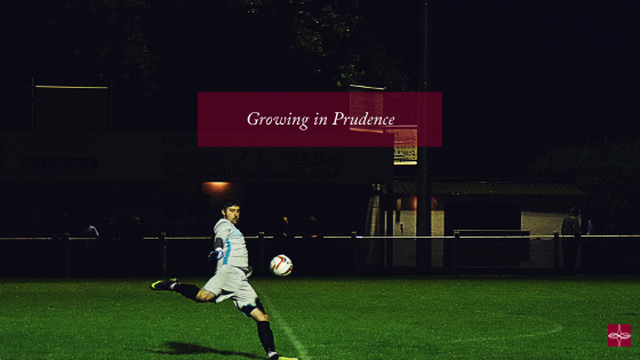
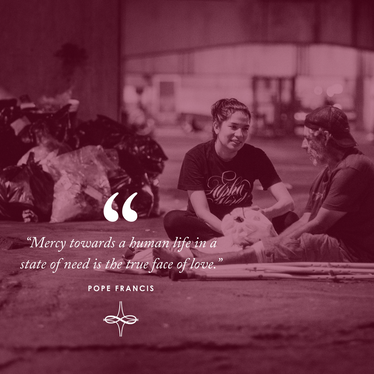
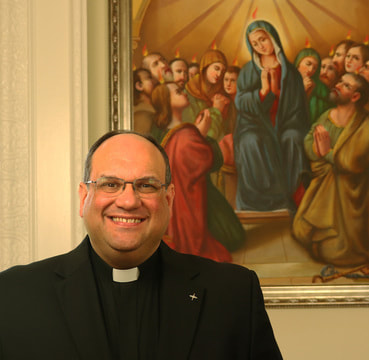
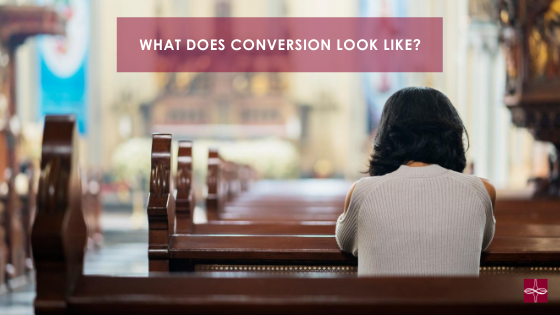


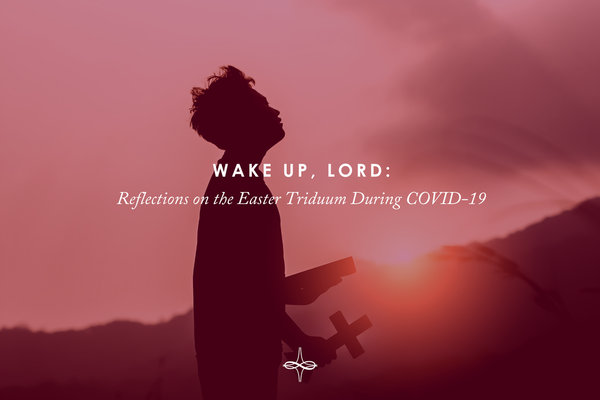


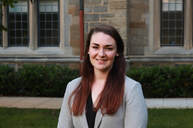
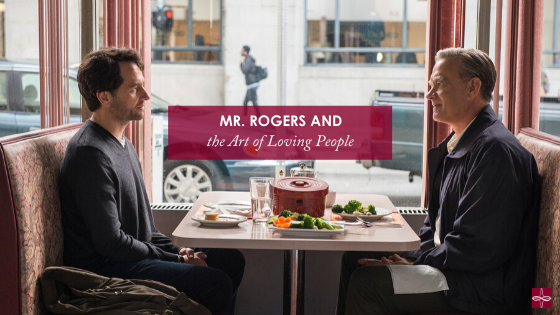

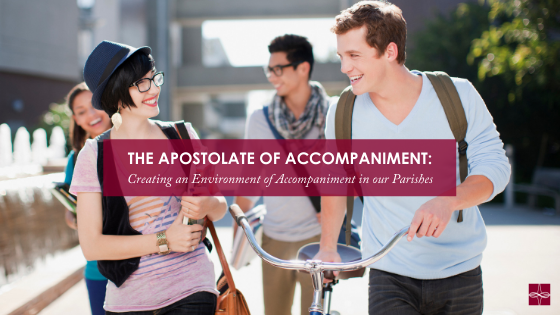

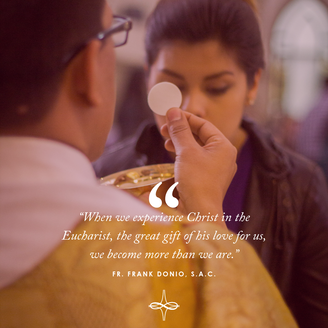
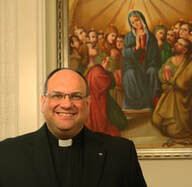
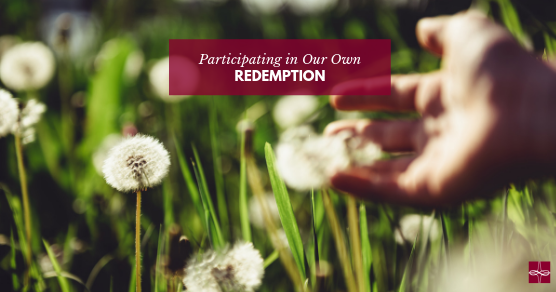

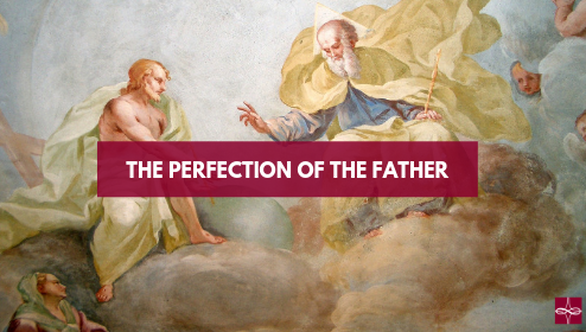

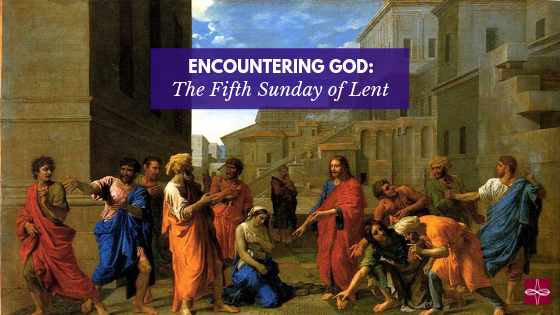
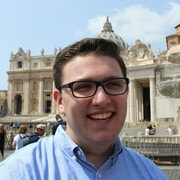
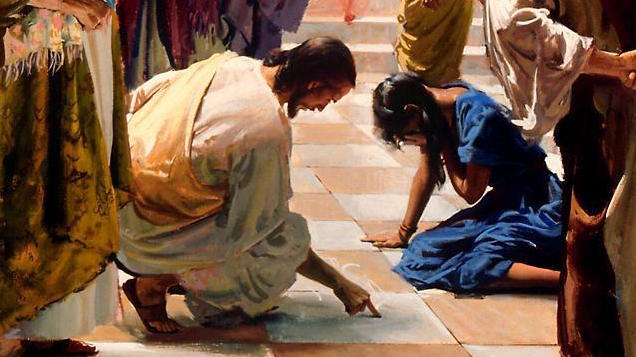
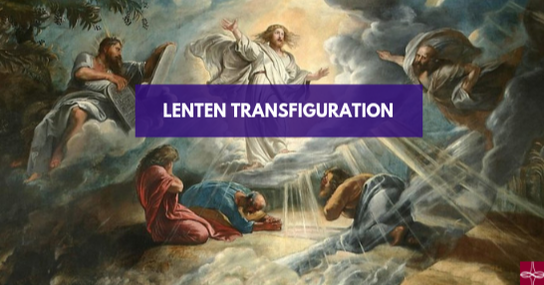

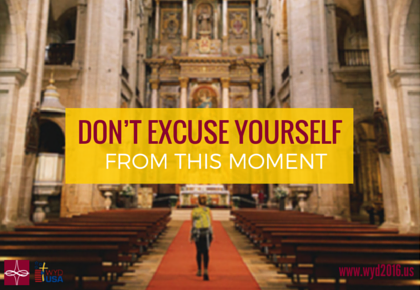

 RSS Feed
RSS Feed